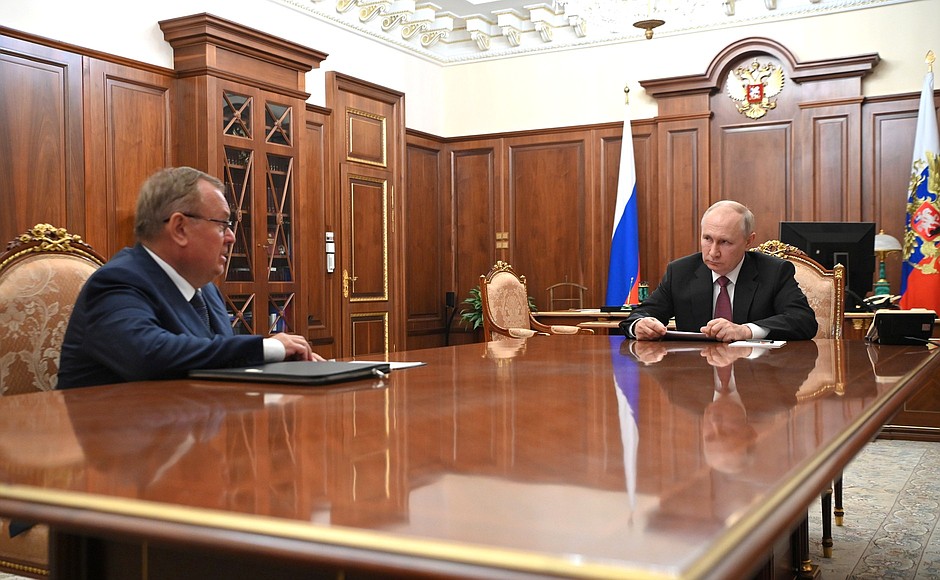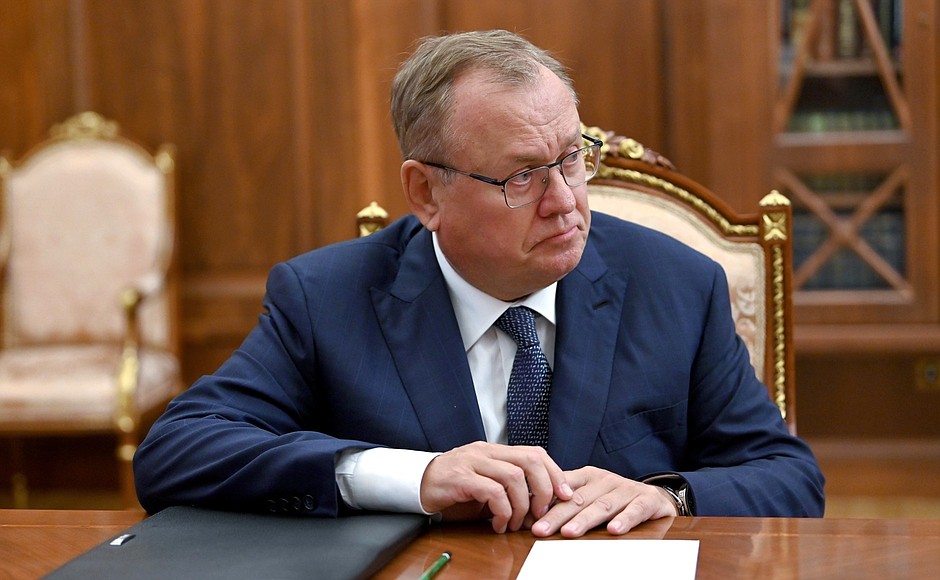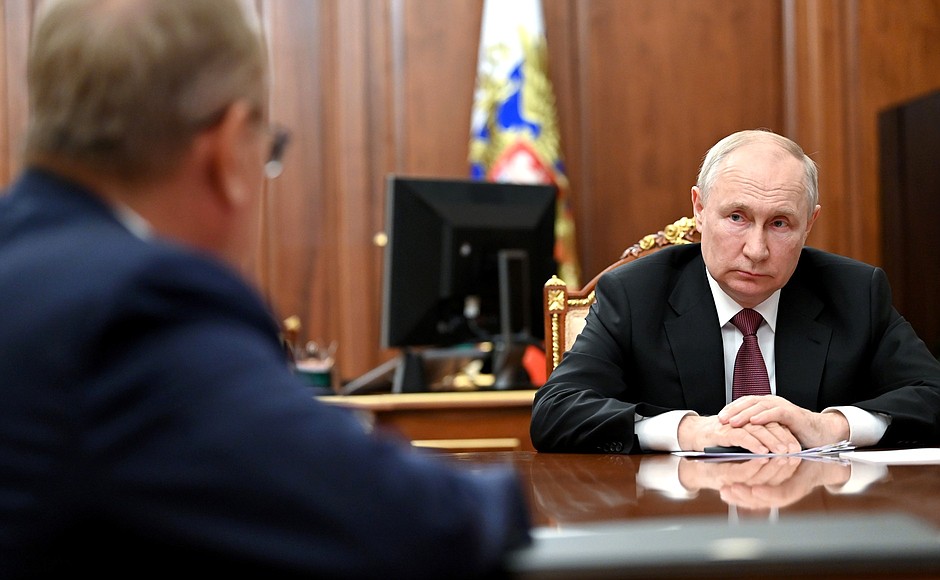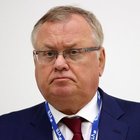President of Russia Vladimir Putin: Mr Kostin, good afternoon.
I will start with a reorganisation issue. After thoroughly considering the issue, the Government of the Russian Federation advanced a proposal to transfer the state-owned stake in the United Shipbuilding Corporation to VTB.
I support this proposal. I know that our colleagues have discussed this with you and considered it in advance. I would like to hear your reaction on this matter.
President and Chairman of VTB Bank Management Board Andrei Kostin: Mr President, thank you for your trust.
When I first heard about this, it was indeed quite unexpected. But I can say that we know the company well, have followed it from its incorporation. We work closely with the corporation as well as with the enterprises that are part of the corporation, so we are aware of their problems, especially those concerning financing. Therefore, I am sure that, with your support, we will cope with this task and will make every effort to resolve all the problems. There are many issues there, especially given the current situation, but I believe they are solvable.
Vladimir Putin: You are quite right. There are many problems and many questions, but it is a viable business, and is generally gaining momentum.
Yes, there are issues that require special attention, including from the bank's specialists. They need to do some calculations to decide on the company’s financial turnaround. I know this cannot be done without the Government’s support, so of course, the Government will provide it.
I very much hope that your specialists, who have proved their high professional level, will cope with all the problems. This is certainly a challenge, without exaggeration; this is serious, you will be dealing with an entire industry.
Andrei Kostin: We understand the responsibility, but the team is ready, and we will work on this. Thank you very much.
Vladimir Putin: Once again, I expect effective work on the part of your entire team.
And the second question – we have discussed this on several occasions – has to do with creating a payment system for foreign trade operations, with a shift to national currencies, and so on. I know that you have also done a good job here, including with the Bank of Russia.
Andrei Kostin: You know, recent months have seen very active development in bilateral settlements, and while initially Russia was the main initiator of these processes, today they are developing independently of Russia.
We know that the major states in Asia, such as China, India, Indonesia, the Arab countries, particularly in the Gulf, Saudi Arabia… We had many meetings with African representatives at the Russia-Africa Summit, and they also told us that these processes are underway in Africa and that some African countries are carrying out reciprocal transactions in their national currencies. What is most important, they are creating a new infrastructure. Specifically, new systems are coming that can replace SWIFT, systems that are created by those countries.
I believe one of our goals today is to combine these systems. Every country is developing a system of its own: the Chinese have their system as do the Indians and us… the important thing is to make them interact. This is a crucial point.
In addition, direct correspondent accounts are being established between banks, and transactions are being made in national currencies.
We are also promoting the idea of creating a settlement and depository hub to replace Euroclear. As is common knowledge, Euroclear has compromised itself by freezing huge monetary assets, including those belonging to Russian citizens. But many states – we talked with several Gulf states – are ready to deploy those hubs in their territory to create an alternative. Moreover, this is not directed against anyone, this is just an alternative option that will be devoid of any political or other implications.
We are working on this. I think that, of course, China is the major partner in this, and we must work with them at all levels, including at a high political level. But there are some shifts over there, too, including under the auspices of our central banks.
New digital technologies offer considerable opportunities, of course. The digital ruble is being launched under the Central Bank’s guidance, with another 13 banks involved in the project. And this is not an experiment but a practical effort to introduce the digital ruble. We know about the existence of the digital RMB. On this basis, we too are developing a digital ruble. I think this will be a big step forward in promoting our bilateral payments.
Other countries will gradually create and develop similar digital systems as well. I think, therefore, that we will see a tempestuous transition to transactions in national currencies both this and next year in countries of the Global South, as we call them, that is, in developing countries that are friendly to Russia today. And we are working very hard on this.
Vladimir Putin: Do you mean your bank is also moving in this direction?
Andrei Kostin: Yes, all the more so since we have a network. You know that there are banks in Shanghai and New Delhi, and we are working closely with the Gulf states. In general, there is movement everywhere.
Vladimir Putin: Good. Thank you.
<…>



